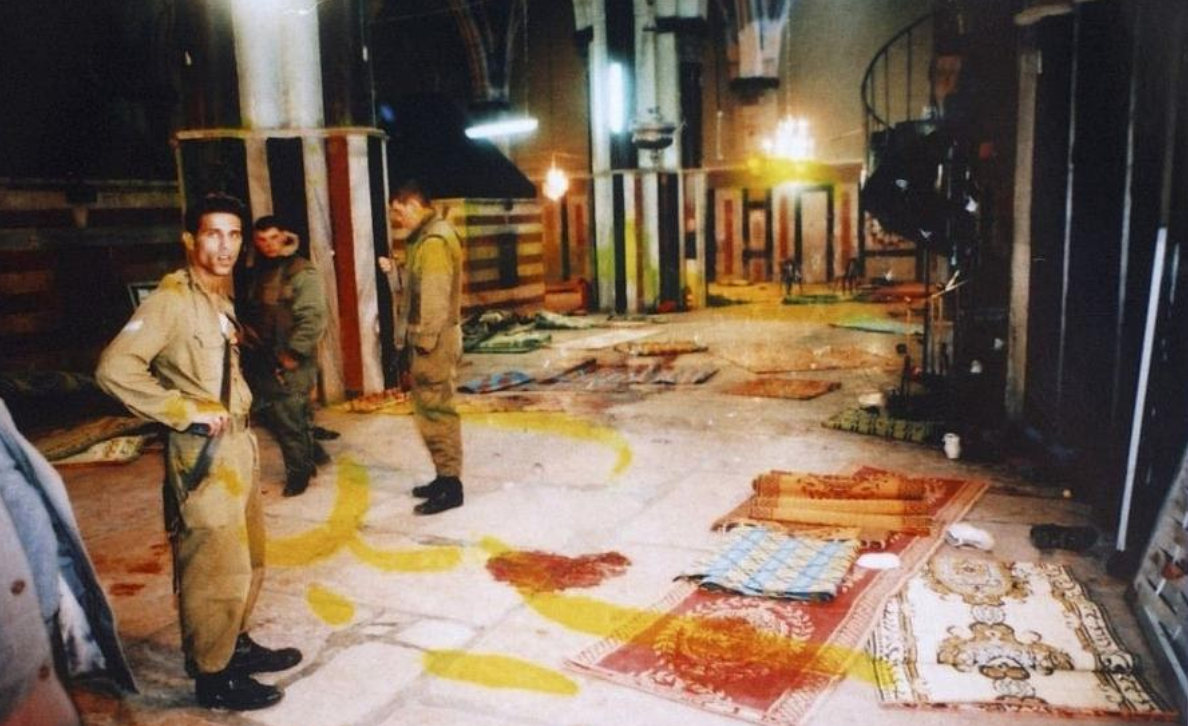25 February may sound like a typical day, but this day is different in Al Khalil. It is a day that brings many awful memories from 27 years ago.
On Friday, 25 February 1994, during the Muslim holy month of Ramadan, worshippers were praying peacefully inside Al-Ibrahimi mosque in the Old City of Al Khalil at around 5:00 AM. They didn’t know that outside the mosque stood a man that would turn their moment of peace with God into a tragedy.
Baruch Goldstein, an Israeli settler, doctor, and a reserve soldier, entered the mosque and opened fire against unarmed people in the middle of their prayer. He used illegal ammunition called Expanding Bullets (Dumdum), designed to expand on impact, sometimes up to twice the diameter. The use of these bullets is considered a war crime and prohibited for use in war.
Goldstein’s act of terror took 29 Palestinian lives and wounded more than 100. The loss of life could have been even higher if his gun hadn’t jammed, stopping the bullets for a moment. A group of worshippers took the opportunity to disarm him and beat him to death.
This crime changed life in the Old City forever. Ironically, even though the massacre was committed against Palestinians, Palestinians continue to pay the price for a crime they did not commit.
A commission took only six months to conduct an investigation carried out by the Israelis themselves. As a result, the mosque was divided into two parts, rewarding the Israeli settlers with half of the space. Adding to that, they closed the city’s main street for several months, considered the heart of the city and a commercial and industrial hub for Palestinians. By the time it was reopened, people had lost their businesses, and in their place was a feeling of fear on every street corner. A few years passed, and in 2002 the military closed the street entirely, only allowing illegal Israeli settlers to use it.
Twenty-seven years have now passed, but the families’ sorrow and memories of their beloved ones are still alive. Mamoun Wazwaz, who survived the massacre, shared his memory, “The massacre wasn’t only about the mosque, it was Hebron’s massacre. I have painful memories; every time I smell blood, it feels like it’s happening right now. Everything you imagine about the massacre, I can see it now, while I’m talking to you. I have painful memories when I sit alone, and I cry when I talk about what happened on that day, I can’t control myself.”




